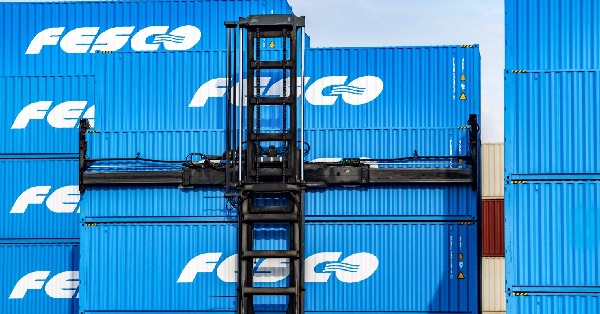For the first nine months of 2022 container terminal of FESCO Transportation Group in Novosibirsk increased processing of containerized cargo by more than 13% compared to the same period last year, to 86 thousand TEU. Growth in comparison with the first nine months of 2020 is 27%.
The main drivers of such increase in transshipment volumes were re-orientation of export flows from the North-West of Russia to the Far East and development of domestic container traffic on routes Moscow – Novosibirsk and Novosibirsk – Irkutsk region/Krasnoyarsk Territory/Trans-Baikal Territory. Growth of import to cities of Western Siberia via the Far East at the beginning and in the second half of 2022 also had an impact.
In addition, in the first nine months this year, FESCO terminal in Novosibirsk handled more than 50 contrailers (against 18 in 2021), welcomed 389 container trains from all directions (against 328 trains in the same period last year) and provided services for delivering and cleaning of more than 11.5 thousand rail cars with non-containerized cargo.
Due to increase of volumes of container transshipments and in order to reduce the time of processing, FESCO terminal in Novosibirsk also purchased and put into operation new loading and unloading equipment – a container loader.
FESCO container terminal in Novosibirsk located near railway station Novosibirsk-Vostochny is the main link in the chain of intermodal and domestic container cargo flows of the Group via regions of Western Siberia. The terminal serves as one of the largest regional centers for transshipment of containerized cargo by rail and road, which will allow FESCO to be the key provider of terminal services in Novosibirsk region for all categories of cargo owners.









































